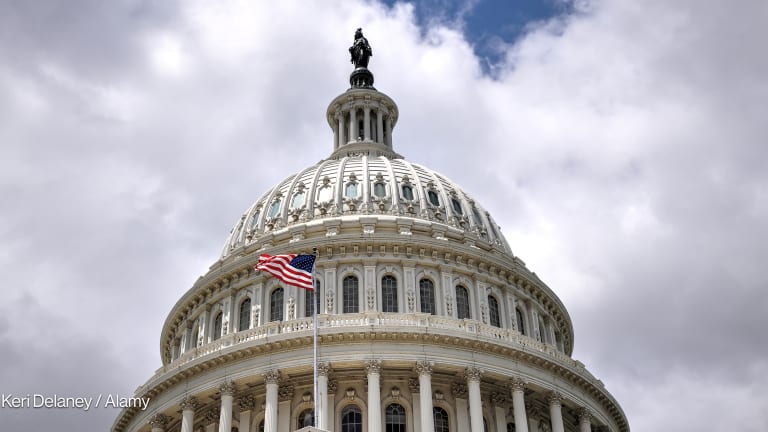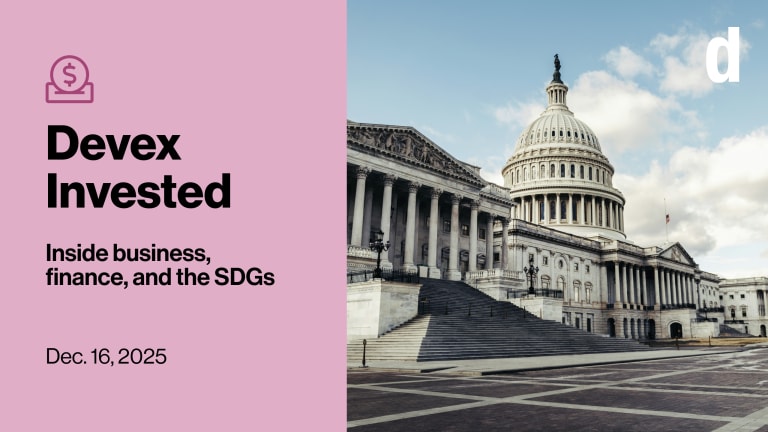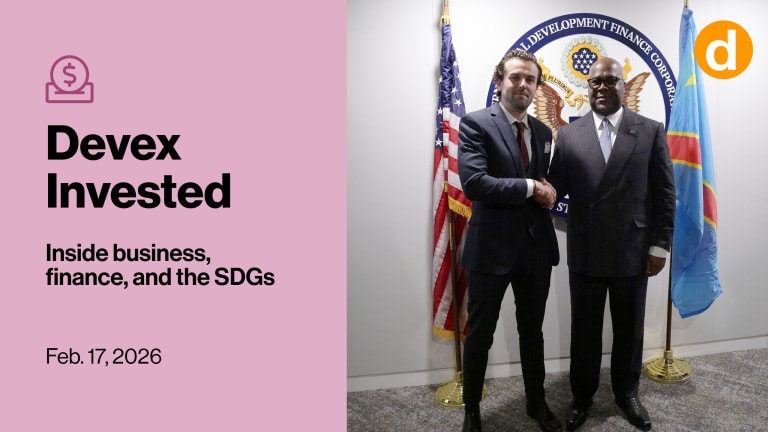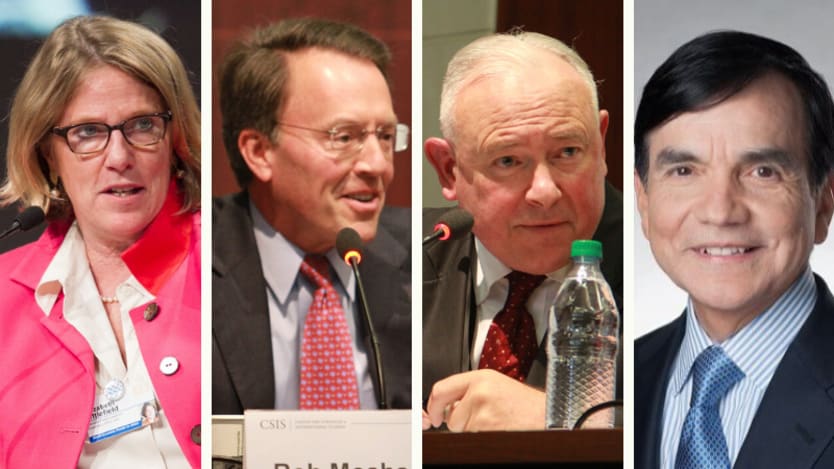
WASHINGTON — For nearly 50 years, the Overseas Private Investment Corporation served as the United States’ development finance institution. On Jan. 2, it was officially replaced by the U.S. International Development Finance Corporation, or DFC.
A new US development finance agency takes flight
In 2018, the U.S. Senate passed the Better Utilization of Investment Leading to Development, or BUILD Act, to create a new U.S. government agency — the U.S. International Development Finance Corporation. Development experts called it the biggest change in U.S. development policy in 15 years.
While most of OPIC will continue through DFC, the new agency will also have new authorities and a stronger development mandate than its predecessor.
In the lead-up to the launch of DFC, Devex caught up with former OPIC leaders to talk about the organization’s legacy and what they hope the new agency will keep moving forward.
“One of the most important things that needs to be preserved is the ability [of DFC] to continue to be nimble and fast and creative and responsive to clients and markets’ needs.”
Elizabeth Littlefield, former OPIC president and CEO, 2010-2017Elizabeth Littlefield, 2010-2017
While DFC has replaced OPIC in name, the new agency will build on the foundations of OPIC, though it will be unconstrained by some of the same requirements, according to Elizabeth Littlefield, who served as OPIC president and CEO between 2010-2017.
“OPIC was one of the first organizations to really demonstrate that the private sector has a major role to play in international development,” Littlefield said. “OPIC has absolutely been a leader in demonstrating in a tangible way that business can and must be a force for good, especially in developing countries.”
The way that OPIC invested along with private business to provide people with clean energy, water, low-income housing or economic opportunities helped to project American values and create goodwill in developing countries, she added.

But over the years, the agency was held back by what Littlefield calls “some of the legacy policy apparatus,” that are removed by the Better Utilization of Investment Leading to Development Act, which created the new agency, and should not hamper DFC, she said.
As DFC embraces some of these changes, including relaxing the requirement to work with U.S.-connected companies, it should enable the agency to do more in the lowest-income countries, where there often aren’t U.S. investors, Littlefield cautioned.
OPIC has often helped lead investments in particular sectors — affordable housing in the Bush administration and renewable energy in emerging markets during the Obama administration — which has paved the way for other investors and to spur growth.
OPIC was a great partner with international organizations and the rest of the U.S. government and would often pioneer systems — including for enterprise risk management — that would be shared with other agencies, she said.
Maintaining some of that leadership and innovation in the new agency is important, Littlefield said.
“One of the most important things that needs to be preserved is the ability [of DFC] to continue to be nimble and fast and creative and responsive to clients and markets’ needs,” she said.
DFC will have a lot more money to spend — the agency can more than double OPIC’s portfolio size — but Littlefield cautioned that the agency should not rush to disperse the funding too quickly and risk OPIC’s track record of being “efficient, effective, and generating income.”
The underwriting standards should remain strong even as the new agency takes on new risks, she said.
Rob Mosbacher, 2005-2009
“I’ve believed for a long time that OPIC is one of the great underappreciated assets of the U.S. government,” said Rob Mosbacher, who served as OPIC CEO from 2005-2009.
Mosbacher came from the investment community and said he’s seen how effective the private sector can be in driving development and economic opportunity.
“I think what OPIC has been able to do is extraordinary and in many cases punches above its weight,” he said. “It has in many ways been punching over its weight with one hand tied behind its back.”
Mosbacher said he’s proud of OPIC and what the leadership and staff has been able to achieve over the years but he doesn’t “bemoan its disappearance” or “feel any nostalgia.”
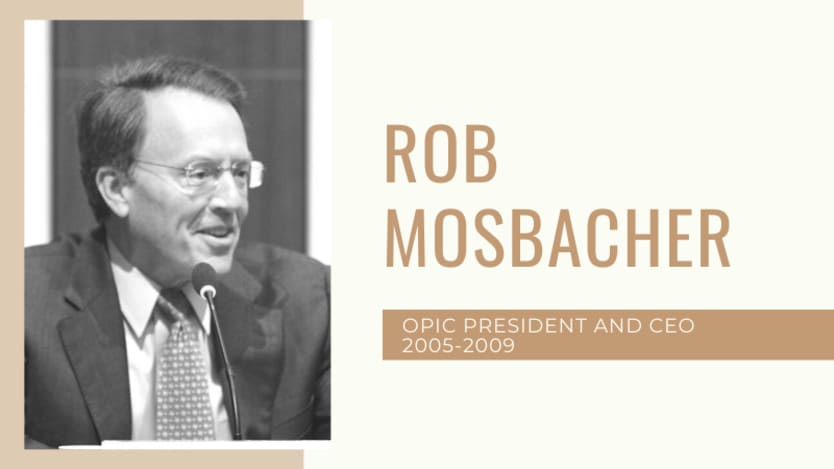
It would be a different story if staff were leaving, Mosbacher said, because “it’s hard to describe to people on the outside how well I believe the professional staff at OPIC balances the development imperative with sound investment.” Most of the former CEOs praised the OPIC team and suggested that keeping them and empowering them within the new DFC was important.
The agency is evolving in a way that will allow it to have more development impact and is retaining its people, Mosbacher said, so he is excited about the next stage.
“I feel like, OK, we’re about to embark on a whole new stage of life of our development finance institution,” he said.
The new name may also be a good thing as it will eliminate the confusion between OPIC and OPEC, the Organization of the Petroleum Exporting Countries, and also better explains what the agency does, Mosbacher said.
Peter Watson, 2001-2005
Over the years, OPIC faced quite a bit of criticism, and during his time heading the agency from 2001-2005, Peter Watson said he faced complaints that the agency was an “ATM for the Fortune 50” or “social welfare” for big corporations.
Perhaps that’s a part of the agency’s legacy that can finally be left in the past, Watson said, though it will have to protect against the perception.
That constant pressure and questions did lead the agency to reform and adapt over time, which pushed it to improve, a kind of evolution that may be necessary in the future as well and can be drawn upon in this transition, he said.

In the face of criticism the agency needed to prove that its investments could have impact, it needed some “home runs as leverage,” Watson said. The agency focused on affordable housing, contributing to the South Africa Housing Initiative and supporting the construction of about 100,000 homes for low-income families, and helped spur growth in the industry — proving that OPIC support could have positive social impacts and drive innovative financing.
Watson was at the agency three times, beginning in 1989, and saw a lot of transitions. One of them was the split of the finance department into two, one dealing with small businesses and the other with large deals. He also witnessed the creation of the office of investment policy and the introduction of a development matrix.
OPIC also always had an outsize reputation, with people around the world aware of and seeking investments by the agency, even in countries such as Sudan, where OPIC doesn’t operate, he said. The new DFC should look at how it can operate in additional low-income countries especially as government leadership changes, Watson added.
George Muñoz, 1997-2001
“OPIC was crucial when globalization started in the mid 1990s, the walls of protection that countries had put up in the emerging markets all started falling down at a rapid pace,” said George Muñoz, who served as OPIC CEO from 1997-2001.
As countries opened up and governments wanted to upgrade infrastructure and bring in private companies, businesses started coming to OPIC, asking for help investing in countries where there was political risk, he said.
“OPIC became very, very critical as a means of bringing to these emerging markets countries a means of satisfying privatization efforts and foreign direct investment,” Muñoz said.
When he led OPIC, there was a high demand for the agency to visit countries and garner media attention when they did, Muñoz said. The investments represented new forms of technology and certain aspirational policies such as fair labor laws and environmental protection measures, he said.
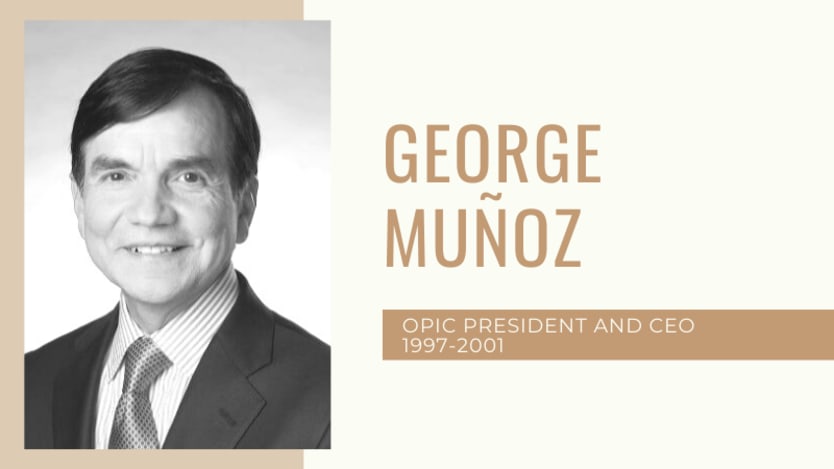
For years, OPIC did big infrastructure projects, but there were questions about how it might make different types of investments, including private equity, he said. During Clinton’s second term as president, the administration was focused on Africa and private equity funds seemed to be a way to spur investment on the continent, so the agency began working in that area, even though it couldn’t make direct equity investments.
During that time, there was also an evolution in looking at how the agency could play a role in helping establish better environmental and business practices or policies, Muñoz said.
As OPIC evolves into DFC, it should remain focused on helping build economies and leave social policy to other agencies that are better equipped to handle it, he said.
It’s important DFC “not become USAID or the State Department and not get too slipped into being a social change agency or a policy-driven agency — it should be there for what countries need and to help our country have decent impact,” Muñoz said.
Search for articles
Most Read
- 1
- 2
- 3
- 4
- 5





